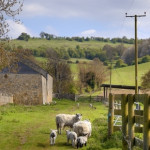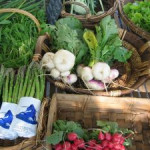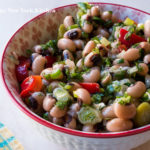Organic crops, grown without recourse to synthetic fertilizers and pesticides, are credited with miraculous properties by many of their fans. Unfortunately, there is little scientific evidence that they are more nutritious than those produced by conventional means. But their supporters argue that the methods used to raise them bring other benefits, too. And here they may be correct. That, at least, is the conclusion of a study by Matthew Jones of Washington State University, which he has just published in the Journal of Applied Ecology.
Contamination of fresh produce with bacteria-laden wild animal feces is a problem in many places. For this reason, farmers often remove hedgerows, ponds, and other habitats to discourage visits by such animals. That is necessarily detrimental to wildlife, and also requires the application of more pesticides because it reduces the number of insectivorous birds and mammals around. Dr. Jones speculated that an alternative way of dealing with animal feces would be to encourage dung beetles to bury it and bacteria to break it down, and that this encouragement might be an automatic consequence of organic farming.
To test this theory, he and his team dug pitfall traps, baited with pig feces to lure dung beetles, in 41 broccoli fields on the west coast of the US (a region that grows well over a third of America’s fresh produce). They also collected soil samples from the fields in question. The western part of the US has been the source of several outbreaks of food poisoning caused by toxin producing strains of E. coli, a gut bacterium. Research suggests these are linked to contamination by wild boar feces (hence the choice of pig feces as the lure). Dr. Jones focused on broccoli because it is frequently eaten raw, and is thus likely to carry live pathogens into the human gut.
Of the fields in the study, 15 were farmed conventionally and 26 organically. Dr. Jones and his colleagues found from their traps that organic farms did indeed foster large dung beetle populations, which removed significantly more pig feces over the course of a week than did beetles, dwelling on conventional farms.
To establish whether high beetle numbers and good microbe diversity really did result in fewer disease-causing bacteria, the researchers followed up their field work with laboratory experiments. In one such they presented three species of dung beetles with pig feces that had been inoculated with a cocktail of harmful strains of E. coli. One of these species, Aphodius pseudolividus, had no effect on those strains. But the other two, Onthophagus Taurus and Onthophagus nuchicornis, reduced pathogenic E. coli numbers by 90% and 50% respectively.
In a second experiment the researchers preented microbes from the various fields with the same fecal mix. This showed that the bacterial floras of organic farms were much more effective at suppressing dangerous strains of E. coli than those of conventional farms. The order of business, then, seems to be that beetles bury the dung and soil bacteria render it harmless. Big points for organic farming.
“Work With What You Got!”
©Tiny New York Kitchen © 2019 All Rights Reserved
Family & Thanksgiving
More than any other holiday, Thanksgiving has evolved as a time to gather together. On Christmas most Americans stay at home, but on Thanksgiving, many pack up and leave home to spend the holiday with relatives and friends. This is nearly as old a custom of the day as having turkey and pumpkin pie.
The reunion tradition arose in the early eighteenth century as families began dispersing across New England to settle on the frontiers of New England (western Massachusetts, Vermont, New Hampshire, and Maine). Gradually, before and after the Revolutionary War, New Englanders pressed into New York State, Ohio, and even parts of the southern colonies and territories. In the nineteenth century, hundreds of New Englanders went west during the Gold Rush and subsequent westward migrations. And as Boston, New York, and other towns grew into cities, young people left farms to join businesses or to work in industries in urban centers. Thanksgiving was the time people chose for family reunion, to go back to the old homestead for a visit. It still is.
“Work With What You Got!”
© Victoria Hart Glavin Tiny New York Kitchen © 2016 All Rights Reserved

“Food, one assumes, provides nourishment; but Americans eat it fully aware that small amounts of poison have been added to improve its appearance and delay its putrefaction.” – John Cage
There has been quite a bit of controversy these days about eating organic. Recent studies state that it really doesn’t matter if you eat organic foods or not. When something is labeled organic, it usually means that a farm has not used pesticides and has taken considerable care to avoid any cross-contamination. Producing organic food undoubtedly costs more money which is passed on to the consumer. Buying organic tends to be quite a bit more expensive than buying non-organic.
Honestly, I don’t care what the studies are saying about eating organic versus eating non-organic. I would rather not put pesticides into my body as well as wanting to support farmers and food companies that are not using pesticides. I love going to farmers’ markets during the spring, summer and fall and when I am shopping in the grocery store I am willing to pay a bit more for organic food.
If you have decided not to buy organic here is a list of foods that have found to be the most and least contaminated.
Most Contaminated
Apples
Bell Peppers
Celery
Cherries
Grapes
Lettuce
Nectarines
Peaches
Pears
Potatoes
Spinach
Strawberries
Least Contaminated
Asparagus
Avocados
Bananas
Broccoli
Cabbage
Corn
Kiwis
Mangos
Onions
Papayas
Peas
Pineapples








